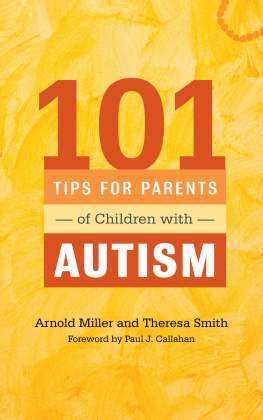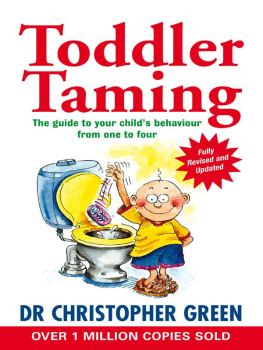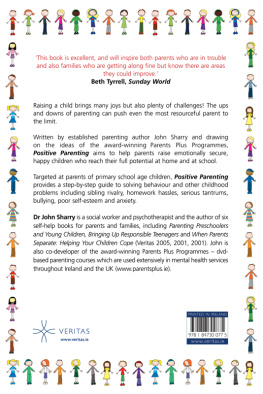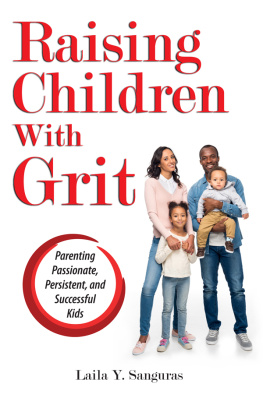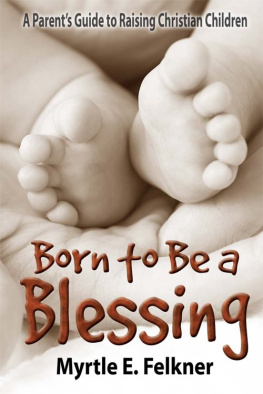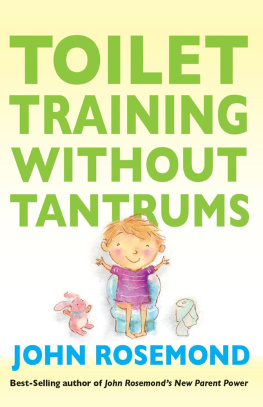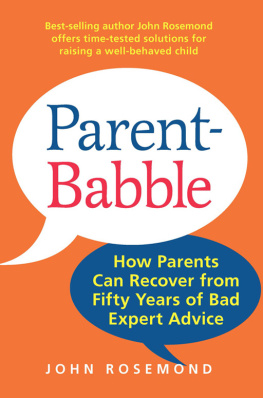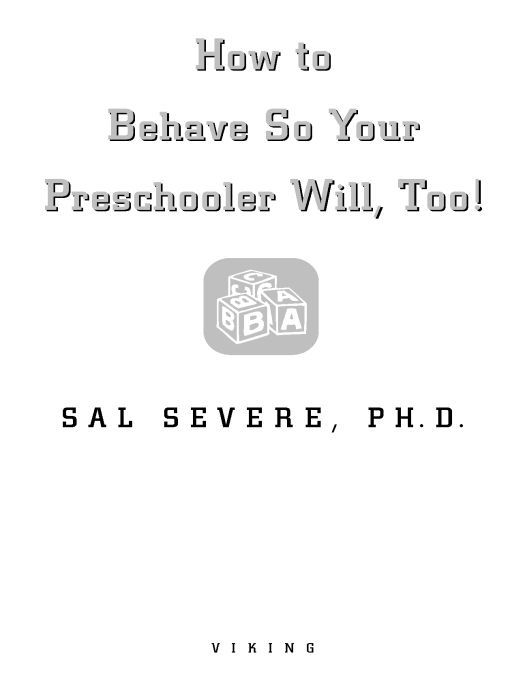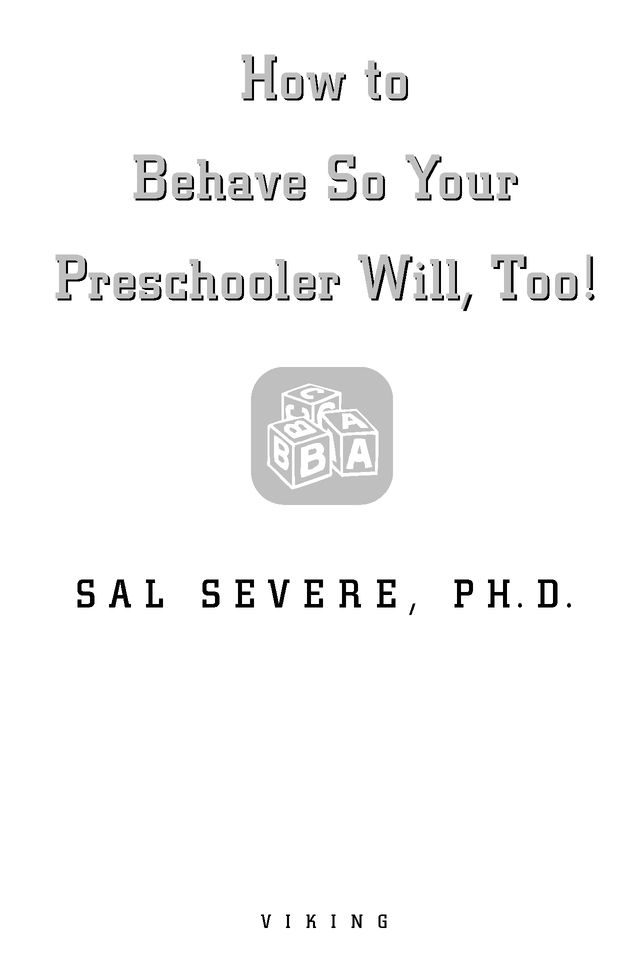Table of Contents
ALSO BY SAL SEVERE, PH.D.
How to Behave So Your Children Will, Too!
For my parents, Mary and Tony, and
my children, Anthony, Leah, Alyssa, and Dominic, and
my wife, Dianne, who taught me the most
about parenting preschoolers
Preface
The idea for this book occurred to me while I was doing an interview for National Public Radio, when the host of the program asked me at what age discipline really begins. This was a question I had heard many times before, not only from talk show hosts but also from many parents. My answer was always the same: The sooner the better! Then came the revelation: My next book needed to address discipline issues of preschool children. Why? Because patterns of behavior that are formed during these precious, developmental years are the foundation for later behavior, attitudes, and relationships. So it is essential to establish positive patterns from the beginning. Furthermore, preschoolers are unique in that their behavior is so strongly influenced by their level of understanding, their ability to comprehend and use language, and their temperament. And because the mind of a preschooler absorbs everything around it, parents need to be completely aware of their own behavior. Therefore, parents of preschoolers now have a How to Behave book written especially for them.
I have spent the last thirty years working with behavior-disordered children. Early in my career, I realized that working with these children solely during the school day was insufficient. I needed to get their parents involved. Its been my experience that when a childs family life is improved, all other aspects improve as well. So I began sharing my experiences with groups of parents. Groups became workshops. Since 1982, more than 30,000 parents have attended these workshops. Nearly half were parents of preschoolers. I report this to you because I believe that I have learned more from these parents than they have learned from me. Every time I heard a new strategy or solution to a common problem or an entertaining story I would write it down. This book is a collection of these strategies, solutions, and stories.
SAL SEVERE
Acknowledgments
A well-written book depends on many people besides the author. I wish to thank one of the best preschool psychologists I know, my wife, Dr. Dianne Heckman, for her inspiration and constant encouragement, as well as her invaluable contributions and assistance with the research for this book. Since readability is as important as content, I am especially grateful to my editor, Jane von Mehren, for her brilliant insights and refinements. Special thanks to my agent, Laurie Liss, and Tim McCormick, my first publisher, for bringing How to Behave So Your Children Will, Too! to Viking and the world, which made this book possible.
Thank you to the professionals and proofreaders who gave their valuable time and advice: Lisa Merrin, Ph.D., Robert Atwood, Ph.D., Bonnie Neil, M.S., Robin Howell, Sandra Peacock, and Jennie Pham. Thanks to Gaye Vaterlaus for her expertise and help with the childrens-book list in the appendix. Above all, thank you to the parents and children who have shared their stories so that others may become better parents.
PART I
Introduction
What Preschoolers Need from Their Parents
I remember an occasion when our daughter Alyssa was four. We were going out for dinner, and decided to go to our favorite Mexican restaurant. Alyssa loved having a quesadilla and a side of rice. We have learned that it is always better to go to restaurants where your child has a favorite selection. We ordered our food and nibbled on chips and salsa. Then it happened. As the waiter began placing our meal on the table, Alyssa got up on her knees. There was something strange on her plate. The cook had placed a garnish next to her rice. At first she just stared at the pile of green stuff. Then she pointed an accusing finger and announced, What the hell is this?
We looked at each other with frozen stares of disbelief. Did we hear that correctly? Before we could decide, Alyssa looked up at the waiter. So did we. His expression was just as frozen.
What the hell is this? she asked again.
Its lettuce, he replied.
I dont like lettuce, dont you know that? Alyssa admonished.
We apologized to the waiter and held our breath. We removed the lettuce. Alyssa proceeded to eat with her usual vigor. After dinner, we explained to Alyssa that hell is not a nice word. To this day, we still do not know if she knew what she said.
This kind of baffling, sometimes embarrassing outburst is not uncommon during a childs preschool years. You must be ready for any contingency; life with a preschooler is filled with unpredictability and backup plans. There are times when you feel elated and proud, and others when you feel challenged and embarrassed.
Preschoolers have a spirited desire to rule the world. They are on a quest for autonomy. This emergence of independent thought causes preschoolers to appear self-centered, demanding, and annoying by adult standards. Even the slightest disappointment or frustration can turn into an uncontrollable emotional outburst. Preschoolers behave without regard to consequences, which is why they test limits, often just to see what happens. Although many parents see these behaviors as a never-ending test of their devotion and patience, which often wear thin, these behaviors are normal, predictable, and part of every preschoolers journey from infancy to childhood, from reliance to independence. Parents who understand these natural behaviors will have more appropriate expectations for their children and will be less likely to misinterpret these behaviors as deliberate misconduct.
Being the parent of a preschool child requires a wide variety of personal qualities and technical skills. You need the combined talents of a teacher, recreation director, mediator, psychologist, spiritual mentor, chef (gourmet and short order), medic, consoler, and monster eradicator. Other basic skills include being able to craft an alligator costume without warning the night before the preschool play and stretching a recipe for twenty-four cookies to twenty-seven. You will need to memorize a medley of lullabies, all the hand gestures to the Itsy Bitsy Spider, and at least a dozen verses of The Wheels on the Bus.
For the purposes of this book, a preschooler is a child between the ages of three and six. This stage of development is commonly referred to as early childhood, and it encompasses the nursery or preschool and kindergarten years. During these years, children begin to become surprisingly independent as they learn to apply communication and problem-solving skills in social situations. The preschool years are a critical time because the behaviors and attitudes that are shaped during this period last a lifetime.
Parents are perhaps more important at this stage than any other. And in this book, you will learn how to be the most effective parent you can be. At this stage, children need parents who understand that discipline is a teaching process. I believe that discipline includes everything we do to teach our children to think for themselves and make good choices. Successful parents learn to teach, practice, and reinforce the rules of good behavior, rather than simply announce them.


